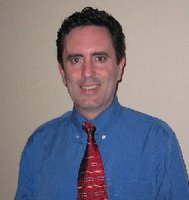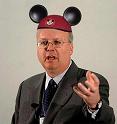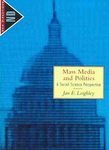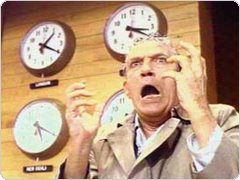Race to the House from the South
With midterm elections rapidly approaching, and all 435 members of Congress up for re-election, there are about 3 dozen Congressional races throughout the nation that both Republicans and Democrats consider critical in the determination of majority control of the US House of Representatives. According to Anthony Man of the Sun Sentinel, one of Florida's most popular newspapers, the Congressional race of the 22nd District of Florida between incu
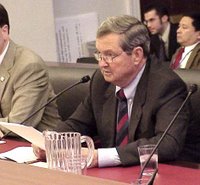 mbent Clay Shaw (R-22) and Ron Klein (D) is one of those races and "may become one of the most contentious and expensive congressional races in the country this year".
mbent Clay Shaw (R-22) and Ron Klein (D) is one of those races and "may become one of the most contentious and expensive congressional races in the country this year".My interest regarding the particular race between Shaw and Klein was sparked a few weeks ago when my family and I went to meet some old friends from the Sunshine State for dinner in the city. Their children are my age and we were good friends long ago when I lived in the 22nd District. During the course of the conversation, my friend’s brother told me he was working for Ron Klein, a Jewish challenger to Clay Shaw. This was common ground for us since I
 was working for a Congressman as well over the summer, Steve Israel (NY-02). He was working in the campaign office and told me this was going to be a heated race when November rolls around. And sure enough, it is.
was working for a Congressman as well over the summer, Steve Israel (NY-02). He was working in the campaign office and told me this was going to be a heated race when November rolls around. And sure enough, it is.According to opensecrets.org, Congressman Shaw has raised $3.4 million towards his campaign effort, while the challenger, [State] Senator Klein has raised approximately $2.8 million. According to one account (I cannot recall offhand), this is the closest a challenger has come to the incumbent’s funding this election cycle. In terms of money spent, both are around $1.1 million. Much of the spending from these campaigns goes to media ads, mostly television, since that is the primary medium for informing voters or potential voters. Hundreds of thousands of dollars are spent on ads. According to the Sun Sentinel, Congressman Shaw recently spent $75,000 to air an ad just to rebuff the claim of Klein that Shaw supports the Bush Social Security Plan. The 30 second ad can be categorized as an "issue ad", which serves to just inform viewers of the candidate's policy although it was in response to Klein's claims. After viewing most of the ads aired by these contestants, it seems that they are, for the most art, "attack ads", which serve to denigrate the opponent in favor of the sponsor. Now, why should this be? Aside from the side-fact that these "attack ads" do contain much in the way of policy, they serve more primarily to frame the candidate in the mind of the viewer; be it in the pictures they choose to air, the way the candidate dresses, the music played in the background, they all serve to influence the viewer in an emotional way. It therefore seems to me that the primary battlefield on which candidates must face is the television.
Senator Klein, in an attempt to oust the Republican from office has aired numerous ads that link the Congressman with the agenda of President Bush, who happens to be going down to the district this week to rally with Shaw. And from viewing the ads, it appears Klein has succeeded in actually framing the race around the issue of supporting Bush. Why would Klein want to do this? To answer this question, we first have to look to Jan Leighley, as this is a paradigmatic example of what Leighley calls the “strategic environment” (pg. 213). In other words, the reason Klein has such good chances in defeating the 25-year incumbent is because he has harped in at the perfect stage of the historical game. What does this mean? Voters in general are vastly ignorant of the inner workings of Congress and even their own district politics. They are however, well aware of the policies of the President of the US since he is most newsworthy person out there. And this affects the local political climate as well. Ron Klein and his staff know this and are using it against Shaw. Even if Shaw has been an excellent Congressman in the past, viewers currently see strong connections between him and Bush and are thereby dissuaded from voting for him.
Congressman Shaw has fought back though. He says in one of his ads that he disagrees with the President when it comes to Social Security and the ad then goes on to describe his plan. Consequently, to no ones surprise, the race began revolving around the issue of Social Security, as it is now.
Apparently there is a strong connection between these commercial ads: one is in response to another. It is clear that both candidates realize that the road to office is through the media.
